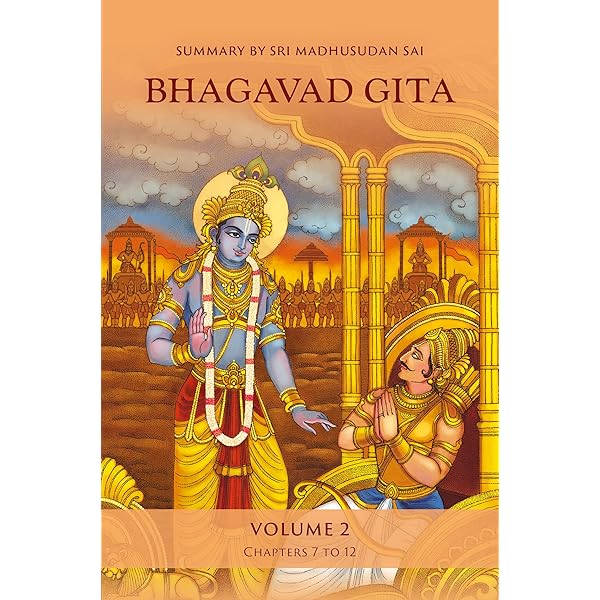Chapter XIV — The Bhagavad-Gita
byChapter XIV begins with Krishna offering a teaching he declares as the highest form of wisdom—knowledge that frees the soul from the cycle of birth and death. He uses the image of a cosmic womb, describing nature as the mother that holds all creation. Into this vast maternal force, Krishna sows the seed of all living beings, identifying himself as the eternal father. This union of divine force and material nature is what gives life its many forms. Nothing exists without this partnership, and every living soul emerges from this blend of spirit and matter. Brahma, the cosmic creator, merely channels this energy into distinct shapes, but the source remains divine.
Krishna introduces three powerful energies—Soothfastness, Passion, and Ignorance—that form the framework of nature and bind the soul to the physical world. These qualities shape perception, action, and even one’s destiny. Soothfastness brings clarity, compassion, and contentment, while Passion fuels ambition and attachment to results. Ignorance clouds the mind, encouraging laziness, delusion, and inertia. Everyone is influenced by all three, but one usually dominates. The qualities do not just color experience—they define how the soul navigates life, what choices it makes, and where it might go after death. A person’s nature is the result of this inner chemistry, constantly shifting as actions and intentions take form.
Each quality has a unique impact on behavior and perception. When Soothfastness dominates, light and understanding increase; this leads to steady joy and a love for truth. Under Passion, the mind becomes restless, constantly chasing desires without satisfaction. Ignorance, on the other hand, dulls the senses and blocks the path to growth. These qualities also influence motivation—Soothfast actions are performed out of duty, Passionate actions stem from selfish desire, and Ignorant actions are careless or harmful. Over time, these tendencies create patterns, building karma that determines one’s future experience. The mind becomes shaped by what it clings to most.
Krishna warns that the qualities trap the soul, even Soothfastness, which though pure, still binds one to joy and clarity. The goal, therefore, is not to remain attached to any single quality, but to rise beyond them altogether. True liberation comes when one stands as the silent witness, aware of the qualities but no longer controlled by them. This detachment brings peace, a stillness that is not disturbed by success or failure. When the soul sees the dance of nature but does not identify with it, it enters into a state beyond pleasure and pain. This state, known as transcendence, is the doorway to eternal freedom.
Krishna outlines how each quality guides the soul to a different outcome after death. Those filled with Soothfastness are reborn in realms of wisdom and virtue. Those dominated by Passion enter lives full of activity and material pursuit. And those overwhelmed by Ignorance descend into lower births, struggling with darkness and suffering. These cycles are not punishments but natural consequences of internal balance. Only those who reach beyond the three qualities attain true liberation and merge with the divine. That state, free of change and duality, is called Brahman—unshakable and infinite.
To help the seeker navigate this path, Krishna describes the signs of someone who has transcended these qualities. Such a person remains unshaken by honor or shame, gain or loss, joy or sorrow. They do not reject the world, but they do not cling to it either. The body moves through life, but the soul is rooted in the eternal. This freedom is not indifference; it is clarity. It is seeing everything as it truly is, without distortion or fear. In this chapter, Krishna offers a complete map of human experience—how we act, why we suffer, and what we must do to find lasting peace.
With calm assurance, Krishna concludes that devotion to the divine is the surest way to rise above the qualities. The soul, when surrendered fully, becomes absorbed in divine presence and inherits its nature—unchanging, pure, and full of light. That union brings the soul to perfection, ending all conflict and opening the door to unending joy. This is not just philosophy but a call to live with intention, to rise above impulses and find the truth that never fades. Chapter XIV thus stands as a beacon, guiding seekers to lift themselves beyond the temporary and into the eternal.

